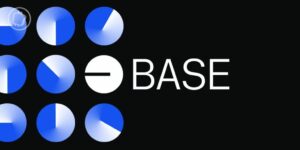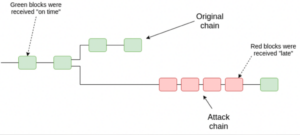
- Blockchain dating apps are transforming how people meet potential partners by leveraging the power of decentralized networks.
- In the context of dating applications, blockchain technology provides a decentralized and immutable platform for storing user data and interactions.
- Despite the challenges, several blockchain dating apps have emerged and gained attention in the online dating landscape.
In a world where technology continues to revolutionize every aspect of our lives, it is no surprise that dating has also seen its fair share of innovation. With the emergence of blockchain technology, a new wave of dating applications is disrupting the traditional dating landscape. Blockchain dating applications are transforming how people meet potential partners by leveraging the power of decentralized networks. By storing user data on a tamper-proof, transparent, and secure ledger, these apps aim to address some of the longstanding challenges conventional dating platforms face. In this article, we will explore the concept of blockchain dating apps, their benefits, challenges, and some popular players in this rapidly evolving market.
Understanding Blockchain Dating Apps
At its core, blockchain is a distributed ledger technology that records transactions across a network of computers securely and transparently. Each piece of data, or “block,” is linked to the previous one, forming an unalterable information chain. In the context of dating applications, blockchain technology provides a decentralized and immutable platform for storing user data and interactions.
Blockchain dating apps vs Traditional dating apps
Blockchain and normal dating apps serve the same fundamental purpose of connecting people for potential romantic or social relationships. Still, they differ in several aspects due to the incorporation of blockchain technology.
1. Security and Privacy:
Blockchain Dating Apps: These applications leverage the security features of blockchain technology to enhance user data protection. Decentralized identity management and encryption techniques can give users more control over their personal information.
Normal Dating Apps: Traditional apps also implement security measures, but they might be more centralized, potentially making them vulnerable to data breaches.
2. Transparency:
Blockchain Dating Apps: Transactions and interactions on these applications can be more transparent due to the inherent nature of blockchain’s distributed ledger. Users might have greater confidence that the profiles and interactions are authentic and not manipulated.
Normal Dating Apps: Authenticity can be a concern, as some users might create fake profiles or misrepresent themselves. Traditional applications rely on centralized systems to manage user data.
3. Verification and Trust:
Blockchain Dating Apps: Blockchain can enable features like verified identity and reputation systems that enhance user trust. Users could have access to verified information about their potential matches.
Normal Dating Apps: Trust is often established through in-app messaging and interactions. While some verification systems exist, they might not be as robust as those enabled by blockchain.
4. Data Control:
Blockchain Dating Apps: Users could have more control over their data and who can access it, as blockchain’s decentralized nature allows for better data ownership.
Normal Dating Apps: Data control might be more limited, with users entrusting the app’s central platform with their information.
5. Tokenization and Incentives:
Blockchain Dating Apps: Some blockchain dating apps might incorporate tokens or cryptocurrencies to incentivize positive behavior, such as meaningful interactions or setting up successful matches.
Normal Dating Apps: Traditional apps might not have such tokenized incentive mechanisms.
6. Decentralization:
Blockchain Dating Apps: These decentralized apps can operate more decentralized, potentially reducing the influence and control of a single entity. Users might have more say in the platform’s development.
Normal Dating Apps: Traditional apps are typically controlled by a central company, which can impact decision-making and governance.
7. Adoption and User Experience:
Blockchain Dating Apps: As of my last update in September 2021, blockchain dating apps were not as widespread or user-friendly as traditional apps. They might require a deeper understanding of blockchain technology, potentially limiting their user base.
Normal Dating Apps: Traditional apps have a well-established user base and are generally more user-friendly due to their refined interfaces and years of development.
The Advantages of Blockchain Dating Apps
Enhanced Privacy and Security
One of the primary concerns of users on conventional dating applications is the vulnerability of their personal information. With blockchain dating apps, user data is encrypted, and no central authority can access or modify it without the user’s consent. This level of privacy and security reassures users that their sensitive information is less likely to fall into the wrong hands.
Immutable Profiles
In the world of online dating, misrepresentation is a common problem. Users may encounter profiles with inaccurate information, misleading photos, or fake identities. Blockchain technology eliminates this issue by making profiles immutable. Once information is recorded on the blockchain, it cannot be altered or deleted, giving users a higher level of trust in the authenticity of the profiles they encounter.
Transparent Data Usage
In the current digital landscape, data privacy is a contentious topic. Users often question how their data is utilized by the platforms they use. Blockchain dating applications address this concern by offering a transparent ledger, allowing users to track how their data is accessed and used within the app. This transparency fosters trust between the platform and its users, creating a more positive user experience.
Challenges Facing Blockchain Dating Apps
Despite the promising advantages, blockchain dating apps still face several hurdles that hinder their widespread adoption.
Limited Adoption
As with any emerging technology, blockchain is still in the early stages of development. Consequently, only a few blockchain dating applications are available, limiting user adoption. For these platforms to gain traction, they must offer unique features that differentiate them from traditional dating apps.
High Development Costs
Building and maintaining blockchain-based platforms can be costly. Blockchain technology’s complexity and resource-intensive nature contribute to higher development expenses, making it challenging for startups to compete with established dating apps.
Technical Expertise Required
Using blockchain dating applications requires technical proficiency, which might discourage less tech-savvy individuals from using these platforms. User-friendly interfaces and comprehensive tutorials are essential to bridge this knowledge gap and make blockchain dating apps accessible to a wider audience.
Prominent Blockchain Dating Apps
Despite the challenges, several blockchain dating apps have emerged and gained attention in the online dating landscape. Here are some of the popular ones:
Hicky
Hicky employs a unique verification process using visual and auditory protocols to establish secure and direct peer-to-peer exchange channels. This verification mechanism enhances the safety and authenticity of user profiles, increasing user trust in the platform.
Viola
Viola utilizes a reputation system to help users find compatible matches. This system relies on feedback and reviews from other users to build a user’s reputation, making it easier to gauge the credibility of potential matches.
SolDate
SolDate offers a fast and secure dating experience by leveraging the Solana blockchain. The platform aims to provide a seamless user experience while benefiting from the security and transparency inherent in blockchain technology.
Matchpool
Matchpool employs a token-based economy to incentivize user participation within the platform. The app encourages active engagement and fosters a vibrant dating community by rewarding users with tokens for specific actions.
The Future of Blockchain Dating Apps
Blockchain technology continues to evolve rapidly; as it does, we can expect more innovations in dating apps. The potential benefits of increased privacy, immutability, and transparency may entice more users to explore blockchain-based dating platforms. However, to overcome challenges such as limited adoption and technical complexity, these applications must continuously improve their user experience, reduce costs, and offer distinct advantages over traditional dating apps.
As the technology matures and user familiarity with blockchain grows, blockchain dating apps could become a more prominent player in the dating scene. Only time will tell if they can revolutionize online dating and provide a safer, more trustworthy, and more efficient way for people to connect and form meaningful relationships.
- SEO Powered Content & PR Distribution. Get Amplified Today.
- PlatoData.Network Vertical Generative Ai. Empower Yourself. Access Here.
- PlatoAiStream. Web3 Intelligence. Knowledge Amplified. Access Here.
- PlatoESG. Automotive / EVs, Carbon, CleanTech, Energy, Environment, Solar, Waste Management. Access Here.
- PlatoHealth. Biotech and Clinical Trials Intelligence. Access Here.
- ChartPrime. Elevate your Trading Game with ChartPrime. Access Here.
- BlockOffsets. Modernizing Environmental Offset Ownership. Access Here.
- Source: https://web3africa.news/2023/08/16/news/the-rise-of-blockchain-dating-applications/
- :has
- :is
- :not
- :where
- $UP
- 2021
- a
- About
- access
- accessed
- accessible
- across
- actions
- active
- address
- Adoption
- advantages
- aim
- aims
- Allowing
- allows
- also
- altered
- an
- and
- any
- app
- applications
- apps
- ARE
- article
- AS
- aspect
- aspects
- attention
- audience
- Authentic
- authenticity
- authority
- available
- base
- BE
- become
- behavior
- benefiting
- benefits
- Better
- between
- blockchain
- blockchain technology
- blockchain-based
- breaches
- BRIDGE
- build
- but
- by
- CAN
- cannot
- central
- central authority
- centralized
- centralized systems
- chain
- challenges
- challenging
- channels
- Common
- community
- company
- compatible
- compete
- complexity
- comprehensive
- computers
- concept
- Concern
- Concerns
- confidence
- Connect
- Connecting
- consent
- Consequently
- context
- continues
- continuously
- contribute
- control
- controlled
- conventional
- Core
- costly
- Costs
- could
- create
- Creating
- Credibility
- cryptocurrencies
- Current
- data
- Data Breaches
- data privacy
- data protection
- Dating
- Decentralization
- decentralized
- Decentralized apps
- decentralized identity
- decentralized networks
- Decision Making
- deeper
- Development
- differ
- differentiate
- digital
- direct
- distinct
- distributed
- Distributed Ledger
- distributed ledger technology
- does
- due
- each
- Early
- easier
- economy
- efficient
- eliminates
- emerged
- emergence
- emerging
- Emerging Technology
- employs
- enable
- enabled
- encourages
- encrypted
- encryption
- engagement
- enhance
- Enhances
- entity
- essential
- establish
- established
- Every
- evolve
- evolving
- exchange
- exist
- expect
- expenses
- experience
- expertise
- explore
- Face
- facing
- fair
- fake
- Fall
- Familiarity
- FAST
- Features
- feedback
- few
- Find
- For
- For Startups
- form
- fosters
- from
- fundamental
- future
- Gain
- gained
- gap
- gauge
- generally
- Give
- Giving
- governance
- greater
- Grows
- Hands
- Have
- help
- here
- higher
- hinder
- How
- However
- HTTPS
- Hurdles
- identities
- Identity
- identity management
- if
- immutability
- immutable
- Impact
- implement
- improve
- in
- inaccurate
- Incentive
- Incentives
- incentivize
- incorporate
- increased
- increasing
- individuals
- influence
- information
- inherent
- Innovation
- innovations
- interactions
- interfaces
- into
- issue
- IT
- ITS
- knowledge
- landscape
- Last
- last update
- Ledger
- less
- Level
- Leverage
- leveraging
- like
- likely
- Limited
- limiting
- linked
- Lives
- Maintaining
- make
- Making
- manage
- management
- manipulated
- Market
- matures
- May..
- meaningful
- measures
- mechanism
- mechanisms
- Meet
- messaging
- might
- misleading
- modify
- more
- more efficient
- must
- my
- Nature
- network
- networks
- New
- NewsBTC
- no
- normal
- of
- offer
- offering
- Offers
- often
- on
- once
- ONE
- ones
- online
- only
- operate
- or
- Other
- our
- over
- Overcome
- ownership
- participation
- partners
- peer to peer
- People
- personal
- Photos
- piece
- platform
- Platforms
- plato
- Plato Data Intelligence
- PlatoData
- player
- players
- Popular
- positive
- potential
- potentially
- power
- previous
- primary
- privacy
- Privacy and Security
- Problem
- process
- Profiles
- prominent
- promising
- protection
- protocols
- provide
- provides
- purpose
- question
- rapidly
- reassures
- recorded
- records
- reduce
- reducing
- refined
- Relationships
- rely
- reputation
- require
- requires
- resource-intensive
- Reviews
- revolutionize
- rewarding
- Rise
- robust
- safer
- Safety
- same
- say
- scene
- seamless
- secure
- securely
- security
- Security Measures
- seen
- sensitive
- September
- serve
- setting
- several
- Share
- single
- Social
- Solana
- solana blockchain
- some
- specific
- stages
- Startups
- Still
- storing
- successful
- such
- surprise
- system
- Systems
- tamper-proof
- Technical
- techniques
- Technology
- tell
- that
- The
- the world
- their
- Them
- themselves
- These
- they
- this
- those
- Through
- time
- to
- Tokenization
- tokenized
- Tokens
- topic
- track
- traction
- traditional
- Transactions
- transforming
- Transparency
- transparent
- transparently
- Trust
- trustworthy
- tutorials
- typically
- unalterable
- understanding
- unique
- Update
- use
- used
- User
- User Adoption
- User Experience
- user-friendly
- users
- using
- utilized
- utilizes
- Verification
- verified
- vibrant
- vs
- vulnerability
- Vulnerable
- Wave
- Way..
- we
- webp
- were
- which
- while
- WHO
- wider
- widespread
- will
- with
- within
- without
- world
- Wrong
- wrong hands
- years
- zephyrnet













